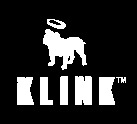Were those challenges not hard enough, Brun knew only too well the social stigma that follows former inmates, a stigma that would make finding work even tougher. But he was determined to move forward. “I had to start somewhere,” he says.
Enter KLINK, a social enterprise of St. Leonard’s Society of Toronto that launched last year with a mission of helping former inmates with job opportunities and training. It operates on two levels. First, under its own unique brand, KLINK sells coffee – roasted by Reunion Island Coffee and distributed by Cultured Coffee Bean – to socially minded organizations.
Aside from starting to establish itself as the coffee of choice for nonprofits, social enterprises and others, KLINK has also been able to secure the commitment of social enterprise cafes, three so far, who agreed to sell their brand. “It just made sense, they’re a natural fit,” says KLINK manager Robert Meinzer of the coffee houses and organizations who’ve already signed up. “We offer something they are more than willing to take – great coffee at good price. But they’re helping out our cause too.”
Second, KLINK partners with companies who offer training and employment opportunities for individuals in Brun’s uniquely challenged shoes. “We want our employment education program to last many years,” shares Meinzer, explaining profits from coffee sales play the dual role of keeping the coffee business and the job training programs running. “The government is not a way to build sustainability so we created coffee sales as a sustainability engine.”
Called KEEP—KLINK Education and Employment Program— since its inception, the initiative has already seen 26 clients complete it. To be accepted into KEEP, former prisoners are first recommended by parole officers or case managers. The client then goes through a two-week training program, a re-orientation of sorts back into society and the workforce. “Coming from prison, after a long time out of a community, you have a different mindset,” explains Brun, of a training that involves, among other things, teaching former inmates effective ways to express themselves, best practices for interviews and respecting the rules of a company.
They then enter into a three-week internship that provides them with on-the-job work experience in a coffee-related industry. Once complete, KLINK helps intern graduates find permanent jobs and take their next steps of employment, using their newfound skills, experience and confidence.
The company Brun was placed with was none other than Reunion Island—an internship he secured after an in-depth interview and a rigorous training program to become a machine operator. After the internship ended, he was asked to stay on and was recently offered a full-time gig. He’s part of the third KLINK cohort at the renowned green roaster and director Adam Pesce is happy to be a part of the initiative on both ends – coffee and on-the-job training. “Creating a brand from scratch has been fun,” says Pesce of the former.
“And it’s good synergy for us,” he says of an opportunity that not only suits their moral compass but they’re structure. A large enough company with a variety of training opportunities— including in the warehouse, factory and production— they also have a training program already in place for their employees.
Besides, “Klink has a nice story to it, not only is there a marketing twist but [the coffee] is a great way to give someone an opportunity once they’ve paid their dues,” he says, explaining a criminal record can severely limit someone’s chances, even if they’re well-qualified. “People make mistakes but, generally, they deserve second chances and they don’t always get a legitimate shot at that,” Pesce adds.
So he and others are motivated to do their part—establishing themselves as examples for others to follow. To be sure, KLINK’s social value is multi-faceted and profound. Studies have demonstrated that about two-thirds of ex-prisoners in Canada eventually re-offend. Employment, moreover, has been proven to reduce those rates of recidivism significantly.
Indeed, what KLINK offers society is complex. But, for people like Brun, what the program means to him is simple. “KLINK gave me boost I needed, they gave me courage and showed me the way,” he says. “KLINK gave me a light in the darkness.”
*not his real name
{jcomments on}
Elisa Birnbaum is the co-founder, publisher and editor-in-chief of SEE Change Magazine, and works as a freelance journalist, producer and communications consultant. She is also the president of Elle Communications.

